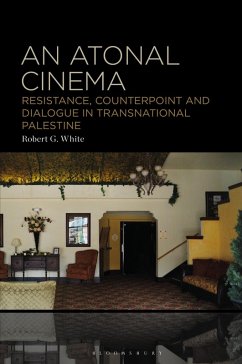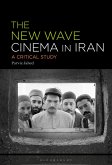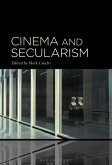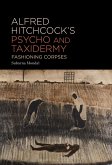This is a book about Palestinians elsewhere and Palestinian elsewheres. Articulating an ambiguous right to remain out-of-place as a spatialized response to the fossilized present, the films and filmmakers in this book examine Palestine, as a place and idea, from the dissonance of exile.
An Atonal Cinema: Resistance, Counterpoint and Dialogue in Transnational Palestine theorizes a transnational consciousness within contemporary Palestinian cinema as one which articulates an 'atonal' cinema, utilizing contrapuntal dialogue as a mode of resistance with which to respond critically to the 'place-myth' of Palestine in films produced within Palestine but without Palestinians. Drawing on a genealogy of Edward Said's atonal thinking of counterpoint, the author argues that the films in this book display a 'double-consciousness', through which Palestine is simultaneously elided and re-inscribed in a contrapuntal dialogue between the 'here' of its contemporary reality and the 'elsewhere' of its historical image.
An Atonal Cinema's radical approach includes cinematic texts from Europe, South America and Israel in its corpus, which have both triggered and been shaped by critical responses in contemporary Palestinian cinema. Drawing on both literature and cinema, it draws on the work of Edward Said, Mahmoud Darwish, Jean Genet and Carlo Levi. Films by Pier Paolo Pasolini, Jean-Luc Godard, Menahem Golan and Miguel Littín are read contrapuntally through contemporary responses from Ayreen Anastas, Basma Alsharif, Mohanad Yaqubi, Elia Suleiman and Kamal Aljafari.
An Atonal Cinema: Resistance, Counterpoint and Dialogue in Transnational Palestine theorizes a transnational consciousness within contemporary Palestinian cinema as one which articulates an 'atonal' cinema, utilizing contrapuntal dialogue as a mode of resistance with which to respond critically to the 'place-myth' of Palestine in films produced within Palestine but without Palestinians. Drawing on a genealogy of Edward Said's atonal thinking of counterpoint, the author argues that the films in this book display a 'double-consciousness', through which Palestine is simultaneously elided and re-inscribed in a contrapuntal dialogue between the 'here' of its contemporary reality and the 'elsewhere' of its historical image.
An Atonal Cinema's radical approach includes cinematic texts from Europe, South America and Israel in its corpus, which have both triggered and been shaped by critical responses in contemporary Palestinian cinema. Drawing on both literature and cinema, it draws on the work of Edward Said, Mahmoud Darwish, Jean Genet and Carlo Levi. Films by Pier Paolo Pasolini, Jean-Luc Godard, Menahem Golan and Miguel Littín are read contrapuntally through contemporary responses from Ayreen Anastas, Basma Alsharif, Mohanad Yaqubi, Elia Suleiman and Kamal Aljafari.









